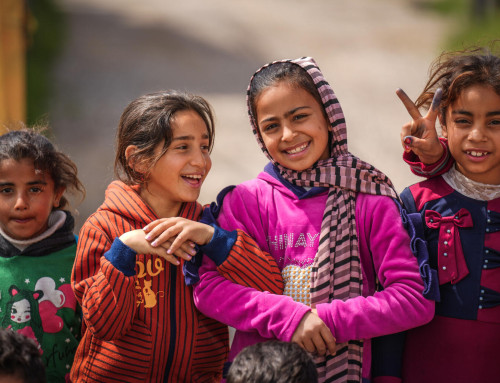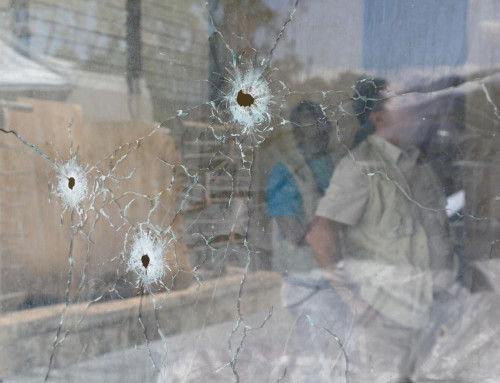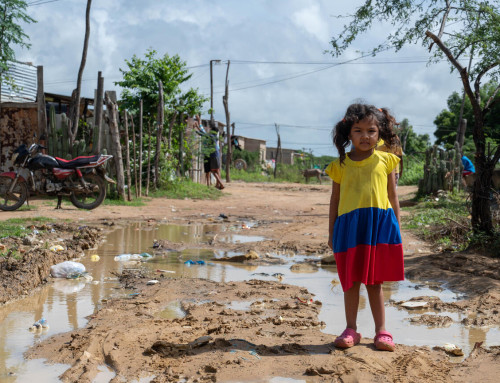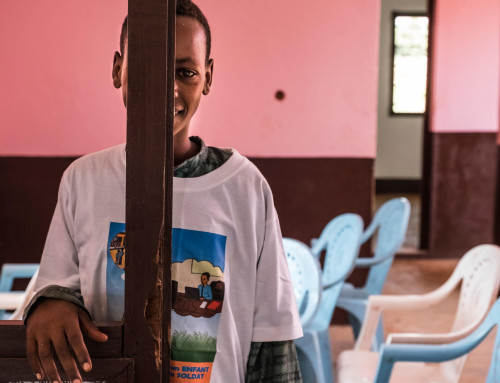This story was produced in collaboration with the Whitaker Peace and Development Initiative (WPDI) ![]()
“The recruitment and use of children exposes them to serious harm that can cause life-long damage to their physical and psychological health.” Reframing Child Reintegration: From humanitarian action to development, prevention, peacebuilding and beyond – Global Coalition for Reintegration of Child Soldiers (2020)
Learn more about reintegration of former child soldiers here.
Kevin joined the Whitaker Peace and Development Initiative (WPDI) Office in Uganda in 2018 as the Trauma Healing and Rehabilitation Officer.
She works around the Kiryandongo Refugee Settlement which hosts over 65,000 people, of which 80% are women and children. She provides direct care to children, youths and community members to help them manage their post-trauma symptoms while promoting community connectedness and healing.
Grave violations against children in armed conflict, including the recruitment and use of children, expose them to serious harm that can cause life-long impacts on their physical and psychological health, as well as on their families, communities, and peace and security of the country.

WPDI
The list of the most common traumas observed by Kevin amongst children victims of grave violations is long. It includes depression provoked by one very traumatic and sudden event, suicidal tendencies, anxiety, aggressive behaviors, social withdrawal from the community, discrimination, or stigmatization.
Children who have exited armed forces or groups must receive long-term and sustainable reintegration support to overcome their traumas, find inner peace and contribute to making peace among people and communities. The emotional and cognitive growth of these boys and girls is crucial to unlocking their capabilities and their prospects within their societies.
Mental healing and psychosocial assistance are critical components of child reintegration programming which help reduce post-traumatic disorders and acute panic attacks including flashbacks. It also contributes to reducing stigmatization and discrimination. To that end, WPDI has been organizing awareness raising sessions in the communities to increase acceptance of those living with post-traumatic symptoms.
To heal acute and chronic trauma, Kevin provides narrative exposure therapy, a short term and culturally sensitive treatment approach. Alternatively, different therapy approaches are combined (e.g. cognitive behaviour therapy, testimonies therapy, client center psychotherapy, etc.) to ensure that children benefit from holistic support. An average of eight therapy sessions is needed for each patient to achieve full or partial recovery.

WPDI
Even once the therapy sessions are completed, children continue to benefit from psycho-social support such as home visits or post-recovery activities to prevent relapse into post-traumatic stress disorders. Through activities such as games, music, dance, and drama, WPDI is providing continuous support to affected children and their communities.
Children and youth can also become Trainers of Trainees and make use of the assisted self-help report to screen survivors of grave violations with post-traumatic stress disorders in their communities and offer support to those in need.
Kevin has accompanied Rajab (read his story here) through his recovery journey. “Since the day I joined WPDI, Kevin has always been next to me. I feel at peace now, but sometimes I have horrible flashbacks and I come to WPDI. She is always there to support me.” Mental healing was critical to improve his psychosocial wellbeing and develop his resilience. From child soldier, Rajab became a youth leader and contributor to peace in his community.
This story was produced in collaboration with the Whitaker Peace and Development Initiative (WPDI) ![]()






